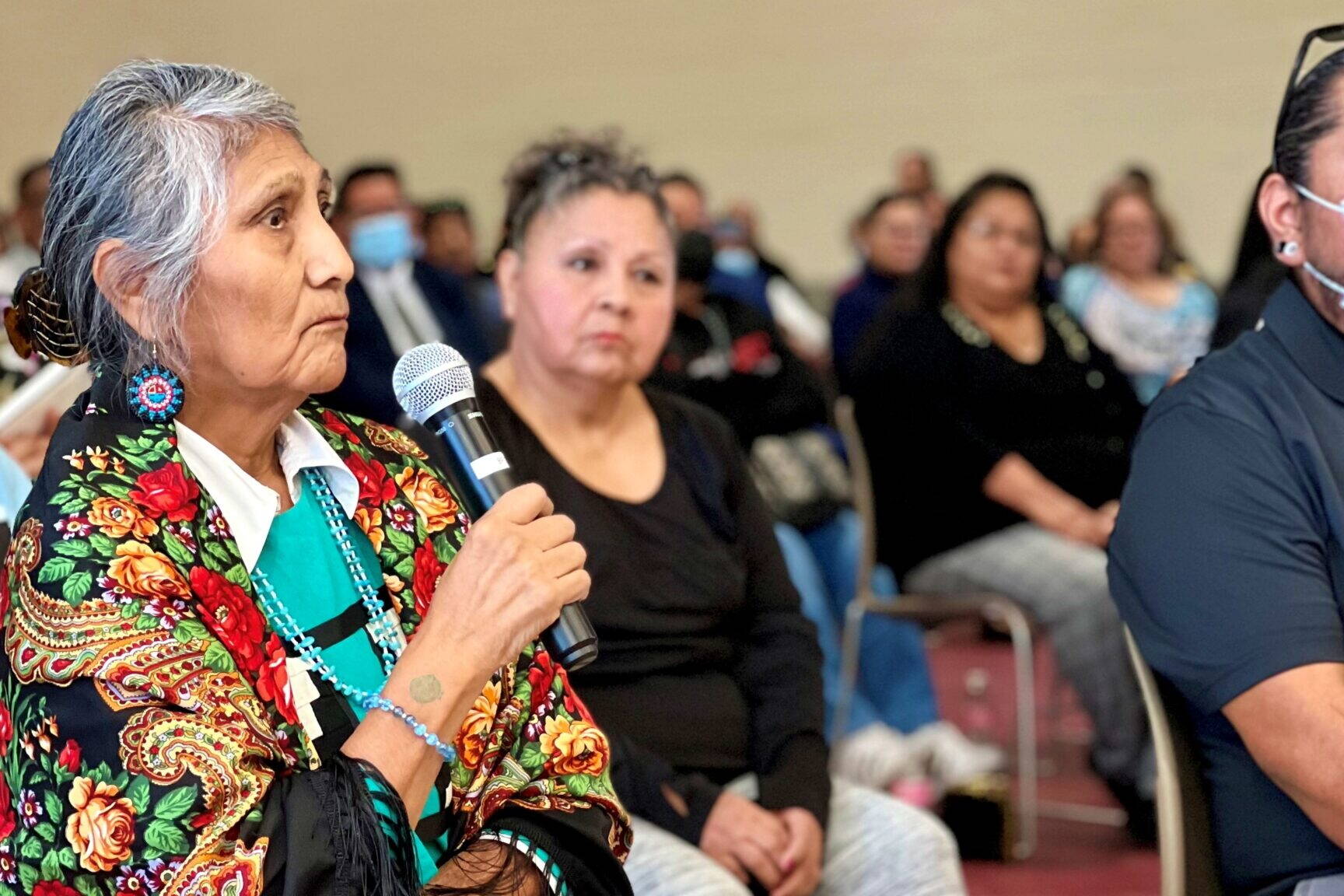For the first time in history, a sitting U.S. president is set to apologize to Indigenous communities for the role the federal government played in the atrocities Indigenous children faced in the federal Native American Boarding School system.
The apology, which Biden will deliver Friday when he speaks at the Gila River Crossing School on the Gila River Indian Community near Phoenix, comes three years after Interior Secretary Deb Haaland launched the first-ever investigation into Native American Boarding Schools.
The final boarding school report provided eight recommendations from the Department of Indian Affairs for the federal government that would support a path to healing for tribal communities.
At the top of that list was a call for the United States to acknowledge and apologize for its role in the federal Indian boarding school policies that have harmed — and continue to harm — Indigenous peoples across the country.
“The president is taking that to heart, and he plans on making an apology to Indian Country for the boarding school era,” Haaland said in an Oct. 23 interview with the Arizona Mirror.
Haaland said she has been pinching herself since she got the news that Biden planned on issuing an apology because of the work put in by so many people to shed light on Native American boarding schools and the lasting impacts it has had on Indigenous communities.
“It’s incredibly meaningful,” Haaland said, because, as part of the boarding school initiative, their department organized the Road to Healing tour, where they visited several Indigenous communities to hear stories about boarding schools.
“They were all heart-wrenching,” Haaland said of stories that were shared by victims and their families. “We sat through so many testimonies from survivors and descendants, and I have a deep understanding of what so many people went through and what our community suffered from.”
The Department of the Interior investigated the federal Indian boarding school system across the United States, identifying more than 400 schools and over 70 burial sites.
Arizona was home to 47 of those schools, which were attended by Indigenous children who were taken away from their families and attempted to assimilate them through education — and, often, physical punishment.
The legacy of the federal Indian boarding school system is not new to Indigenous people. For centuries, Indigenous people across the country have experienced the loss of their culture, traditions, language and land.
“This is an incredibly suppressed history that so many people didn’t know about and now it’s seeing the light of day,” Haaland said. “I have to believe that people will heal from what we’ve been able to do, and certainly hearing from President Biden, who has been the best president for Indian Country in my lifetime, say that he’s sorry, it’s beyond words.”
Biden plans to visit Indian Country for the first time on Oct. 25, where he will issue that apology alongside Haaland at the Gila River Crossing School.
“Some of our elders who are boarding school survivors have been waiting all of their lives for this moment,” Gila River Indian Community Gov. Stephen Roe Lewis said in a statement to the Arizona Mirror.
“It’s going to be incredibly powerful and redemptive when the president issues this apology on Indian land,” he added. “If only for a moment on Friday, this will rise to the top and the most powerful person in the world, our president, is shining a light on this dark history that’s been hidden.”
Haaland said Biden, being the first sitting president willing to apologize, helps Indian Country feel seen because the “horrible history” of Native American Boarding Schools and assimilation policies aimed at pushing Indigenous people out of their communities has been ignored “for so long.”
“It was an outright assault and genocide that our communities went through for centuries, and we’re still here,” Haaland said. “None of anything that the federal government or anyone did throughout those centuries managed to eradicate us.”
“We have persevered,” she added. “I feel so proud the sitting president is acknowledging that. It’s amazing, and I am deeply appreciative.”
Learning that the president is willing to issue an apology, Indivisible Tohono Co-founder April Ignacio said that it is a historic event because they finally acknowledge the government’s role in a national policy of forced assimilation against the first peoples of this land.
“Never in my life did I think we would be here,” Ignacio said. “This apology is long overdue, and the impact the Boarding School era had on our loss of culture and language must be tied to immediate action through reparations.”
In 2023, Ignacio said, Indivisible Tohono organized a caravan of 18 Tohono O’odham elders who were boarding school survivors and attendees to testify during the Road to Healing Tour organized by the Department of Interior.
Ignacio said she has five generations of boarding school survivors and attendees in her family. She shared her story during the Road to Healing tour.
“As a co-founder of Indivisible Tohono, I thank President Biden for his willingness to address the historical and ongoing impact of Indian Boarding School policies,” Ignacio said. “This apology is consistent with President Biden’s promise to honor sovereignty, and this historical acknowledgment will be a part of his legacy.”
• Arizona Mirror of States Newsroon originally published this article. Alaska Beacon, an affiliate of States Newsroom, is an independent, nonpartisan news organization focused on connecting Alaskans to their state government.

